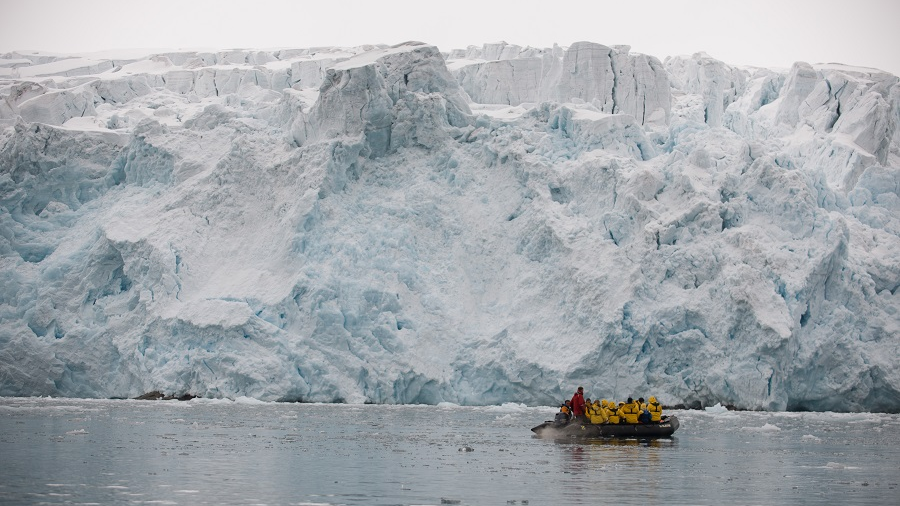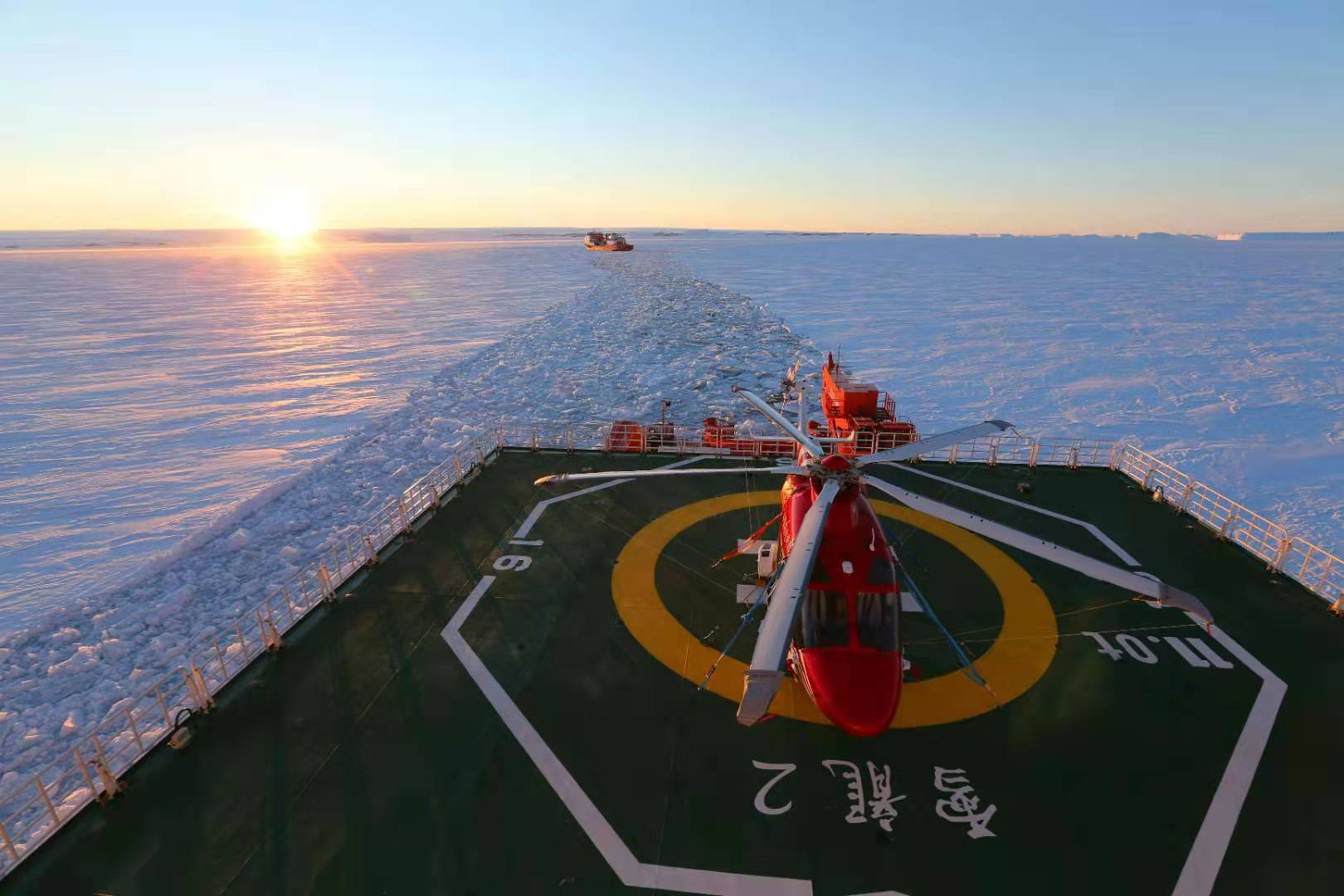
Glaciers are seen in the Arctic. /Xinhua Photo
Glaciers are seen in the Arctic. /Xinhua Photo
Editor's note: Seymur Mammadov is the director of the international expert club EurAsiaAz and editor-in-chief of Azerbaijan's news agency Vzglyad.az. The article reflects the author's opinions and not necessarily the views of CGTN.
India seeks to strengthen its economic and political position in the Arctic. Recently, the largest Russian state oil concern, Rosneft, reached an agreement with India on the participation of Indian investors and contractors in the development of oil fields located in the subarctic region of Russia and the Arctic.
Rosneft's chief executive officer, Igor Sechin, held talks with Indian Petroleum and Natural Gas Minister Dharmendra Pradhan, during which both sides agreed on the participation of Indian businesses in the implementation of the Russian Arctic project "East Oil."
India's state-owned energy company, Indian Oil, signed a contract with Rosneft for the purchase of two million tons of oil in 2020 with shipment from Russian southern ports. Why is India so attracted to the Arctic region? Why is India rushing into the Arctic?
India is well aware that it does not yet have sufficient resources to implement large-scale projects, but despite this, it seeks to establish itself firmly in the Arctic, counting on Russia's support. India's interest in the Arctic is primarily due to the lack of energy that is covered by imports, and this region is known to be famous for its rich hydrocarbon resources. Indian companies are increasingly interested in cooperating with Russia for the joint development of hydrocarbon deposits in the north of Russia – in the Nenets, Yamalo-Nenets Autonomous Districts.
Another factor that draws India's attention to the Arctic region is a possible reduction in transport traffic through the Indian Ocean due to the prospect of an increase in cargo flows along the Northern Sea Route (NSR). The Indian side is not worried in vain, in recent years the volume of cargo transportation along this route has been growing.
In this regard, it is appropriate to recall the important forecast of the Ministry of Transport of Russia on the development of the NSR that the cargo turnover along the Northern Sea Route, which amounted to 17 million tons in 2018, will grow at a slow pace over the next four years (up to 32 million tons in 2022), in 2023 year-immediately by 13 million tons, up to 45 million tons, and in 2024 a sharp jump is expected, almost up to 80 million tons.
In India, they hope very much for the establishment of transport links between the Arctic region and the North-South International Transport Corridor, which is a multi-modal cargo transportation route with a total length of 7.2 thousand kilometers from St. Petersburg to the Indian port of Mumbai. If this connect is established, India will have good opportunities to transport its goods not only to Russia, but also to Northern Europe. In this regard, the Indian side has great expectations from Russia.

China's polar icebreaker Xuelong (back) follows the other icebreaker Xuelong 2 towards the designated unloading area near the Zhongshan Station in Antarctica, November 23, 2019. /Xinhua Photo
China's polar icebreaker Xuelong (back) follows the other icebreaker Xuelong 2 towards the designated unloading area near the Zhongshan Station in Antarctica, November 23, 2019. /Xinhua Photo
New Delhi's desire to cooperate with Moscow in the development of the Arctic is also due to the fact that Russia is the only country in the world with a nuclear icebreaker fleet. Ice-breaking vessels do not need frequent refueling-nuclear reactors and are more environment friendly than diesel ones, they also work long and are safe.
Thus, in the last few years, both countries located in the neighborhood and geographically remote are showing rather increasing interest in this region. In addition to Russia, China and India, countries, such as the U.S., are showing an increasing interest in developing the Arctic. The involvement of China and Russia in the Arctic, of course, cannot but provoke a negative reaction from the United States, and this region may become another point of tension in the world.
Let me remind you of the rhetoric of U.S. President Donald Trump. He said that the United States will not allow interference in the Arctic affairs of those countries that are outside the North. It is no secret that Washington had Beijing in mind, but did they succeed in disrupting China's plans to develop the Arctic? No. On the contrary, we see how Russian-Chinese Arctic cooperation in the energy sector is developing successfully, how Beijing has been building up its naval potential over the past few years, which the Americans cannot put up with.
Today, the growth of the sea power of China and Russia allows them to act more freely and confidently in the Arctic. Now the question is different: Will the U.S. oppose the strategic interests of India in the Arctic, which has found a reliable partner in Russia? The answer is still to be seen.
(If you want to contribute and have specific expertise, contact us at opinions@cgtn.com.)